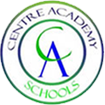CAEA CURRICULUM & ACADEMIC PROGRAMMES
CAEA’s curriculum is carefully designed to accommodate students facing a broad range of learning challenges. Working within the National Curriculum students receive specialist tuition and support to develop skills in literacy and numeracy, as well as in a broad range of other subject areas.
The principles guiding our curriculum and, indeed, our approach to learning, are as follows:
–Students have access to a broad and balanced Curriculum.
–Teachers are highly experienced in teaching students with a variety of learning difficulties and undertake frequent CPD to increase knowledge and skill set;
–Form classes are small (maximum of 10 students per class).
–Teachers employ a wide range of strategies, materials and resources designed for, or adapted to, the needs of students with particular learning difficulty;
–ICT and touch-typing are integrated throughout the school and include the use of a range of software specifically written for students with learning challenges;
–Students are guided in discovering their own learning styles and actively participate in developing strategies to help them access their learning
–Students develop skills, strategies and attitudes necessary for independent learning relative to their ages and abilities;
–Learning is linked through whole-school themes, enabling students to apply learned skills and strategies in all lessons, and to knowledge that links curriculum areas;
–Regular reviews of subject themes and whole-school themes ensure that the curriculum is fresh, stimulating and relevant to the needs of all students.
While it is important to note what we do, it is also important to understand what we do not do.
We do not use 1-1 Learning Support Assistants, although some classes may have extra support at times. All our teachers and therapists must have significant and professional qualifications to deliver lessons or support. This means that they must also be highly experienced with the challenges faced by SEN students.
We do not use a ‘one size fits all’ approach for any of our students. At CAEA, we see all students as individuals. This means that each student learns differently from other students. It is our job to understand how each student learns and then to individualise a programme and appropriate approaches for that student.
Key Stage 2 and 3
Students ages 7 to 13 are taught the skills and strategies necessary for independent learning relative to their age and ability. As you will understand great emphasis is placed on literacy and numeracy, the foundation for much subsequent learning.
Each class has a Tutor who is responsible for the pupils’ welfare and the delivery of their curriculum. Pupils meet with their Tutor daily, and this enables the Tutor to be fully aware of the progress and the challenges that each pupil may be facing in a variety of subjects. As you will understand, there is a strong bond between pupil and Tutor, and this enables the Tutor to keep the parent fully informed regarding the pupil’s progress. Tutors are always available to discuss pupil progress. In essence, this reflects the school’s belief that a pupil’s success is based on the partnership between pupil, school and parent.
The Tutor regularly liaises with other teaching colleagues, and in this way helps ensure that pupils get the most out of our Whole School Themes approach. This provides not only focus on a particular subject but also helps the pupil understand the relationship between one subject and another.
Key Stage 4
Here, we extend the skills and coping strategies taught in Key Stage 2 and 3 to students ages 13 to 16. As you will understand, in addition to the strong emphasis in Key Stage 4 on literacy and numeracy, students also gain mastery over other key subject areas, including Science, History, Geography to name a few. Students are also expected to make gains in independence and related skills.
Key Stage 4 focuses on GCSE study in years 9, 10 and 11. Our curriculum enables students to select at least five GCSE courses from a broad range of options, including those that are indispensable: English, Maths and Science.
Other choices include Media, Art, Music and Drama. The breadth of such offerings reflects our belief that young people should be able to study subjects in which they have a particular interest and in which they are likely to succeed.
As part of our curriculum offer, we also have the opportunity for students to study and undertake qualifications at Entry Level 1, 2 and 3 in English and Maths.
The Unit Award Scheme and Entry Level Certificates
We fully recognise that not all students will be able to participate in our more academic programmes such as the GCSEs. In this regard, we are particularly proud of the Unit Award Scheme and Entry Level Certificate routes available for our students.


